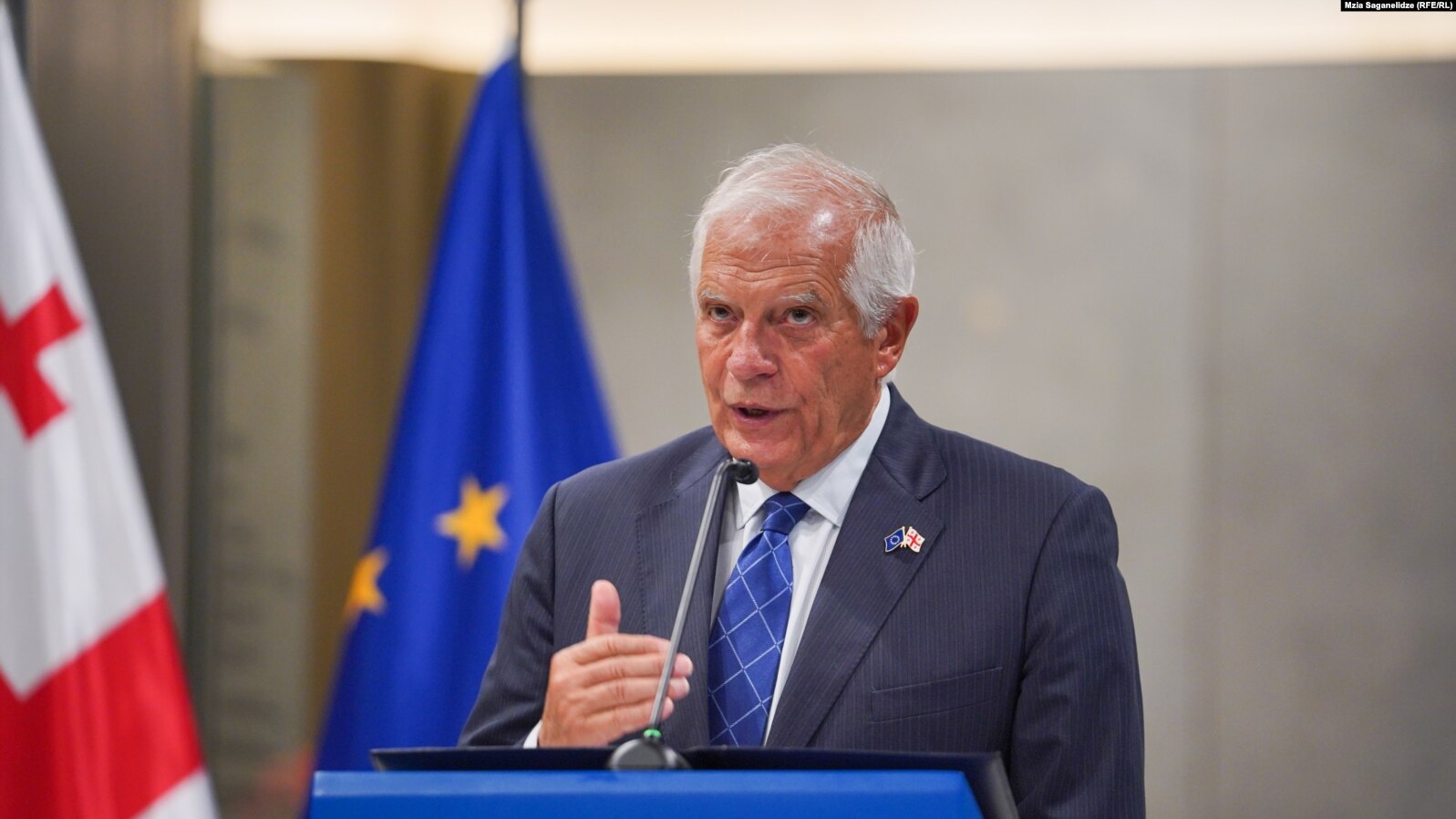EU and Georgia
Josep Borrell - “No doubt, Georgia belongs to the European Family”

Josep Borrell during his press concerence in Tbilisi, Georgia
© Mzia Saganelidze (RFE/RF)Last week, in a significant diplomatic visit, the High Representative of the European Union for Foreign Affairs and Security Policy, Josep Borrell, touched down at Tbilisi Airport. His arrival was marked by a press conference where he addressed critical issues regarding Georgia's aspirations to join the European Union. Speaking with clarity, Josep Borrell conveyed the EU's stance on Georgia's path to accession, emphasizing the need for commitment and reform. His visit included a meeting with the Prime Minister of Georgia, Irakli Gharibashvili, with the speaker of the parliament Shalva Papuashvili, the President of Georgia Salome Zourabichvili, representatives of ruling and opposition parties and civic society.
Josep Borrell was candid about the challenges ahead. He acknowledged that significant work remained to be done and emphasized that the primary purpose of these efforts was to improve the lives of Georgian citizens. He made it clear that these reforms were not intended to appease Brussels but to fulfill the aspirations of the Georgian people.
"The 12 priorities outlined in the European Commission's Recommendations are not to please Brussels, but to improve the lives of Georgian citizens," Borrell declared. He underscored the importance of unity among all actors in Georgia, describing EU accession as a national task that required constructive and united efforts.
While answering the questions from the media he addressed concerns about the EU potentially leaving Georgia, Josep Borrell rejected such notions and reaffirmed the EU's commitment to Georgia's integration. "The EU has not abandoned Georgia and will not abandon Georgia," he asserted emphatically. He urged Georgia to focus on implementing the 12 recommendations, 9 of which still needed to be delivered, drawing an analogy with education, he explained that the process was based on merit and required Georgia to meet certain conditions.
He highlighted the EU's substantial investment and economic plan for Georgia, indicating the commitment to enhancing competitiveness and infrastructure of the country. He emphasized that Georgia's interests aligned with those of the EU and once again stated that the EU intended to support Georgia's EU membership aspirations.
While addressing the media's questions, he cautioned the ruling party against impeaching the president of Georgia. This development has raised concerns among international observers, including the EU's High Representative. In his statement, "Georgian Dream," he expressed concerns about the potentially damaging consequences of pursuing impeachment proceedings against President Zourabichvili. His warning was centered on the belief that such a move could further deepen polarization within the country at a time when cooperation is needed to seize this historic moment.
"As for the issue of impeachment of the president, it carries a risk that will further strain the situation and increase polarization. All institutions should work together and strongly support the country on the European path.” He said.
In October 2023, it will be known whether the European Commission will issue a recommendation for granting Georgia the status of a candidate for EU membership. After the conclusion of the European Commission, by the end of 2023, the leaders of the European Council will evaluate the progress of Georgia and other countries.
